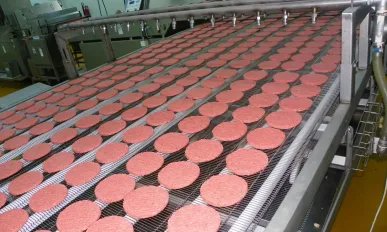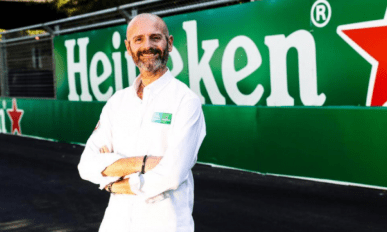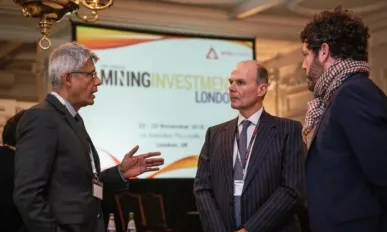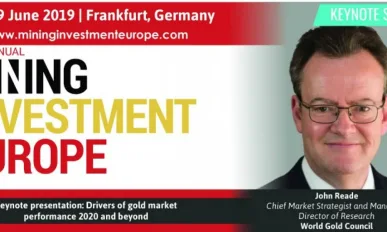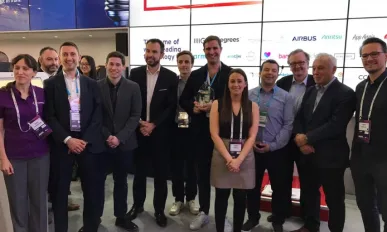Issue 30
Össur : Facilitating Freedom
Össur continues to redefine the boundaries of prosthetic possibility, investing heavily in R&D to ensure its products become accessible to everyone who needs them.
G4S Cash Solutions Netherlands : Money Made Simple
G4S Cash Solutions Netherlands is providing a one-stop payment handling solution in the Netherlands, its Ops 2020 vision geared towards efficiency, ingenuity and seamless customer service.
Dale Farm : Bolstering the Dairy Boom
Famous as the UK’s largest farmer-owned dairy business, Dale Farm is showcasing excellence and powering forward-thinking agriculture.
Al Nabil Foods : Thriving on Optimism and Opportunity
An intelligent, intuitive, proactive business, Al Nabil Foods is defining the meaning of food service excellence throughout the GCC.
AB Connect : Binding Innovation with Agriculture
With British farming poised for both challenges and transformation, AB Agri’s UK animal feed business, AB Connect, is playing the lead role when it comes to taking a fresh, differentiated approach.
Robert Bosch SRL : A New Pillar of Bosch
Passing a five-year operational milestone, the German company’s facilities in the city of Cluj have emerged as a leading light in its automotive electronics operation.
Heineken : The Rise of Low-Alcohol Beer and Formula E
Gianluca Di Tondo, Senior Director, Global Heineken Brand, talks to us about the growing focus on low-alcohol beers, using marketing to make drinking in moderation cool.
IBM and Wimbledon : The Tech Bringing Tennis to the Masses
We take a look at IBM and Wimbledon, and how the company's suite of enterprise-ready AI services, applications, and tooling are changing tennis for the viewer.
ESS Engineering Software Steyr Debuts at Mining Investment London Conference
The Mining Investment London Conference and Exhibition, part of the global Mining Investment Conference Series, will be returning to London for a third time from September 19-20, 2019
Event preview: MINEX Europe Mining & Exploration Forum
The fourth MINEX Europe Mining & Exploration Forum will take place in Sofia, Bulgaria on June 25-27, 2019 under central theme ‘The Future of Sustainable Mining in the Balkans and Beyond’.
Competition and Collaboration in the Financial Sector
Igor Pejic, Head of Marketing at BNP Barnabas PF AT, talks to us about the relationship between competition and collaboration in the financial sector.
MULTI by thyssenkrupp Elevator: Uplifting Urban Mobility
Michael Cesarz, now CEO of the MULTI division of thyssenkrupp Elevator, talks to us about the new motors and innovative technologies in their state-of-the-art elevators.
LabCampus : The New Anatomy of Innovation
We talk to the CEO of LabCampus, Marc Wagener, about how its unique views on innovating business have affected Munich Airport.
Mining Investment Europe : John Reade Named Keynote Speaker
John Reade, Chief Market Strategist and Managing Director of Research at World Gold Energy Council, has been named as the Mining Investment Europe Keynote Speaker.
How Brexit is Impacting Automotive and Tech Sectors
We take a look at the automotive and tech sectors following the unprecedented political fallout of Brexit.
Event preview: Future of Mining EMEA
The Future of Mining EMEA conference takes place in London from June 26-27 2019
MWC exclusive: LaLiga and Modernising Footballing Experiences
LaLiga, the men’s top professional division of the Spanish football league system, is pioneering the use of transformative tech in order to improve the beautiful game for all.
MWC exclusive: How KPMG is Helping to Put Smaller Enterprises on the Map
Amongst the bustle at MWC we found Patrick Imbach, Head of KPMG Tech Growth, the auditing giant’s innovative startups practice.






